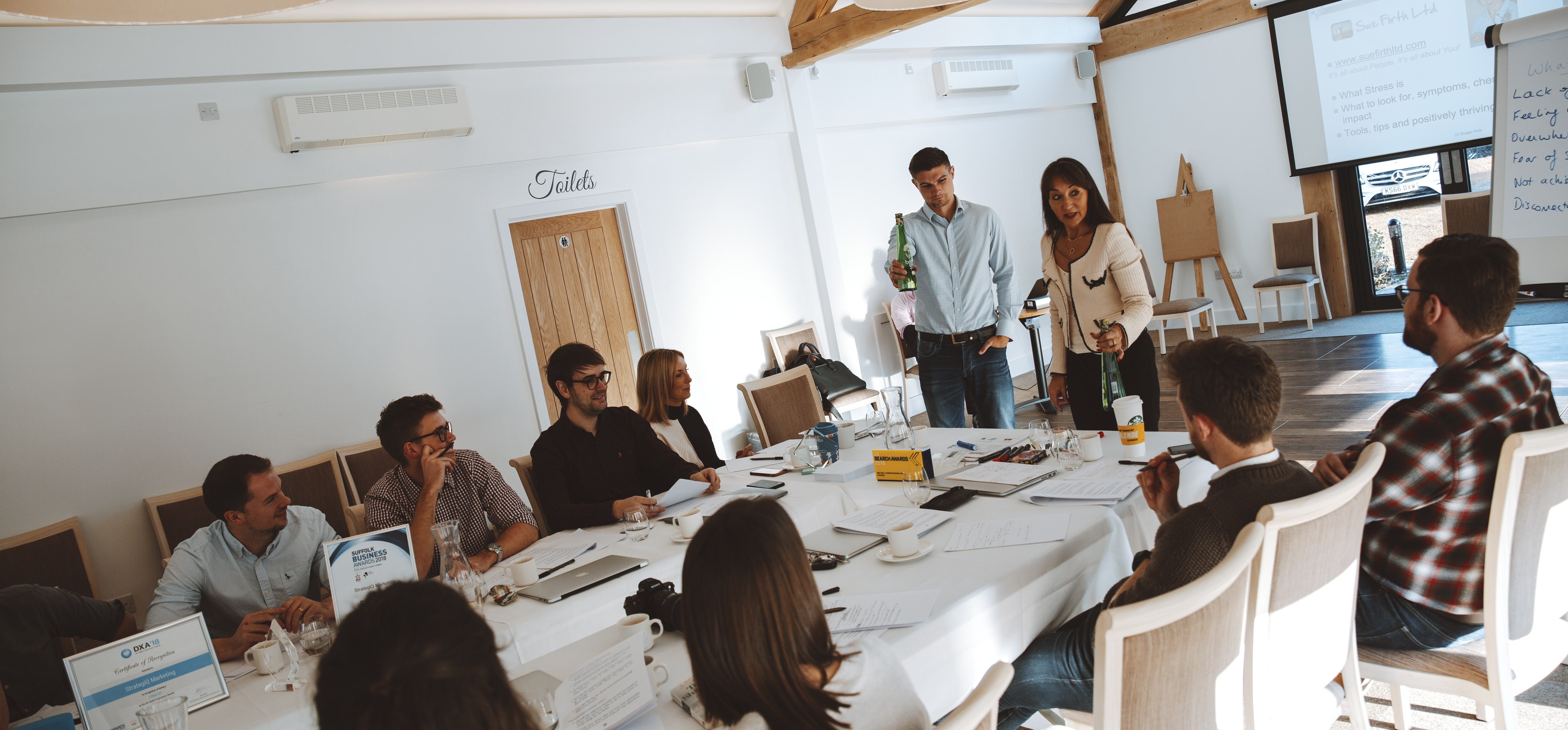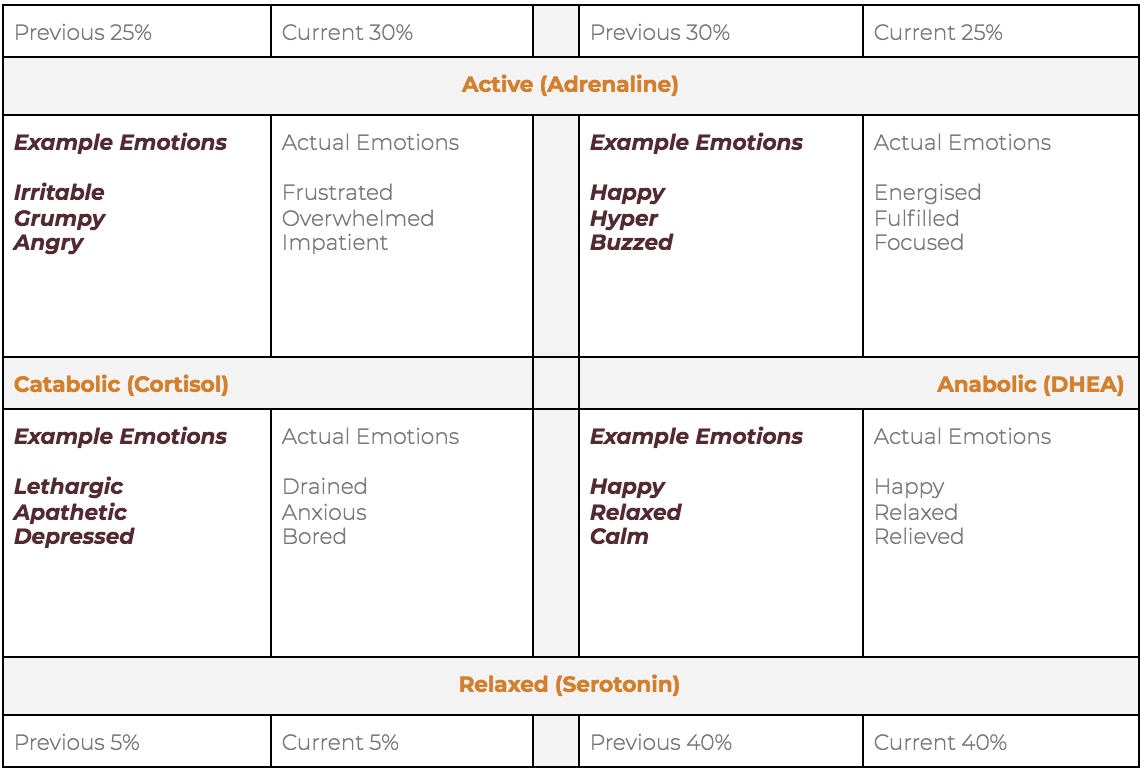For a long time, stress and anxiety were alien concepts to me. I found it hard to process the idea that somebody couldn’t cope with their job, especially as I had no issue managing the pressure – both personal and professional – that comes with launching your own company. If anything, I thrive on it.
Recently, however, more people in my life, both inside and outside of work, have started to struggle with day-to-day life and are fundamentally finding it hard to cope. This, along with other recent developments at StrategiQ, has made me think differently about mental health.
The Impact of Coaching Sessions
In the early days of setting up StrategiQ, I always made time to speak to people monthly, in addition to a more formal discussion as part of our personal development programme (PDP). But, as our leadership team developed and took more ownership of day-to-day management, I had less contact with the wider team.
In January, I introduced a new ‘coaching programme’ with the aim of having more meaningful one-to-ones. The programme is an evolution of our PDP, which was used to set goals, establish training requirements and aid every employee’s professional development.
The new coaching process asks the team questions that we previously didn’t cover and really makes them express their frustrations, or “open up” about anything that is affecting their ability to perform at the highest level. The impact of these questions has been profound to say the least, and really got under the surface of what was causing certain issues.
Whilst as leaders and managers, we are skilled and experienced at handling most situations, I am also aware that attempting to help someone with potentially deep-rooted fears, anxieties and potentially mental illness is beyond my ability, and could do more harm than good.
Introducing Sue Firth
Sue Firth is a stress expert, qualified business psychologist and one of the UK’s leading authorities on change management. A member of both the British Psychological Society and the Health Professions Council, Sue appears regularly in the media and has made guest appearances on This Morning and Panorama.
I first became aware of Sue through my membership of Vistage, the executive coaching and leadership organization. While I had never personally met Sue or seen her speak, many of my fellow Vistage colleagues spoke incredibly highly of her. The fact that she’s won three Speaker Awards with Vistage also made me realise she’s somebody I should meet.
Although Sue largely works with CEOs and senior executives, I felt she could have a real impact on the whole team at StrategiQ, not least because we promote a culture where everyone is encouraged to be a leader. By letting our employees take full ownership of their individual specialism, and empowering them to make key business decisions, it gives them the confidence to develop – not only as marketers, designers and developers, but as human beings too.
However, there’s no hiding from the fact that juggling the marketing requirements of multiple clients, and deciding how best to spend their money, comes with its fair share of pressure. And that’s before you consider the personal challenges employees may be dealing with outside of the office, which could affect their ability to focus fully on the job in hand.
Recognising that this is something many members of the team may need help with, I decided to invite Sue to our company strategy day in January.

During her session, Sue opened everyone’s eyes to the reality that stress, in and of itself, isn’t a bad thing. Rather, it’s simply our body’s natural reaction to everyday pressure, and something that needs controlling in order for us to be able to cope.
As well as introducing the team to some techniques, food items and medical supplements that can relax the body in times of stress, Sue got everyone thinking about their primary stress ‘triggers’ and the coping methods they currently employ to manage them. She also asked each member of the team to pair up with a ‘stress buddy’ who they can lean on for support and motivation as and when they need it.
While the whole session proved incredibly valuable, one exercise really struck a chord with me – so much so that it now forms a key part of our quarterly coaching sessions.
The Wellbeing Matrix
As alluded to above, our new coaching sessions aren’t simply designed to assess performance and discuss career aspirations. More importantly, they serve as a ‘safe environment’ for employees to open up about anything they are struggling with – and this extends to their mental health. To assess how each member of the team is coping emotionally with the demands of their role, as well as anything else life is throwing at them, we ask them to complete a ‘wellbeing matrix’, as illustrated below.

Employees are encouraged to be totally honest when completing this exercise, otherwise they won’t get what they need from it.
The ultimate aim is to ensure somebody is spending at least 70% of their time on the right-hand side of the matrix, ideally with an even split between the top and bottom quadrants. Where there has been a change in percentages between coaching sessions – from right to left, top to bottom, or vice versa – we will assess what has caused the shift and how to get things moving back in the right direction. On the contrary, if the change is a positive one, the discussion may be a lot shorter.
Not only has this exercise been well received by employees, it’s also fundamentally altered my mindset around mental health. I now understand that we don’t all have a ‘switch’ which can be turned on and off at will, and that some people have to manage long-standing mental health conditions on a daily basis. Above all, it’s opened my eyes to the fact that ‘stress’ does exist, and it’s something I have a responsibility to help my employees manage.
“My sessions with Sue have been extremely beneficial – she has helped me work through stuff that I have been dealing with for a long time, and I am very grateful for the time I am able to have with her. Not many employers would invest in something like this – and I am glad that StrategiQ has.”
Such is the impact that Sue had on both myself and the team at our strategy day, we have now employed her on a part-time basis to provide confidential support to individual employees, as and when required. While it may sound like something only a corporate company would do, I truly believe it’s a worthwhile investment for any CEO who genuinely cares about the wellbeing of their employees.
A Few Words From Sue
“We already have a profound difficulty with mental health in this country – 20% of the population is credited with being on antidepressants, or some form of support or medication, at any one time. Neither Andy nor myself want people to drift downwards, and I very much wanted to support people quickly.
It’s evident that StrategiQ is doing fantastically well as a business, but it has also grown very quickly. As a result, some employees are experiencing a sense of rapidly being out of their comfort zone, and they just need some help repositioning themselves into a place of comfort, so they can hit the ground running and not feel too daunted by that. In other cases, there are classic mental health issues which I am skilled in being able to help with, but which Andy naturally hasn’t studied or developed the skills for.
One of the most objective benefits of providing this kind of one-on-one support is that we see an improvement in somebody’s health, wellbeing or happiness very quickly. But there are subjective benefits too. It keeps people committed, they feel that there is a regard for their wellbeing and their happiness, and it helps them feel a significant level of commitment from the business because they know they’re being looked after. That’s a positive all round, really.”
Key Stats
- One in five people are currently on medication for the treatment of mental health difficulties.
- Approximately one in four people in the UK will experience a mental health problem each year. (Source: Mind)
- One in six people in England report experiencing a common mental health problem (such as anxiety and depression) in any given week. (Source: Mind)
- 75% of people in managerial positions have difficulty sleeping
- 64% of people in managerial positions experience stress and are slow to recover
- 82% of people in managerial positions have significant issues that stop them working well
Employee Testimonials
Here are just a few of the comments that StrategiQ’s employees have made about their sessions with Sue:
- “Sue helped me see beyond the top-level decisions of other team members to uncover motivations and meaning behind them. My sessions also helped me understand the underlying reasons I would react to certain decisions and not to others. I always left with a deeper understanding of both myself and my team.”
- “My sessions with Sue have been extremely beneficial – she has helped me work through stuff that I have been dealing with for a long time, and I am very grateful for the time I am able to have with her. Not many employers would invest in something like this – and I am glad that StrategiQ has.”
- “Having Sue available to us has also quite simply been incredible. Personally, Sue has helped me understand how I behave in certain situations and what I can do to handle these situations better, particularly stressful situations that we all encounter on a weekly basis.”
- “I’ve only worked with Sue for a short period of time, but the time I’ve spent with her has already made such a huge impact. Sue understands the pressure points and areas I need to work on to maximise my personal and work life. She also gets to know you as a person incredibly quickly, which allows her to establish various exercises and techniques to help you reach your goals. I love working with Sue and genuinely want to touch base regularly, as I think she’s an incredibly positive and influential figure.”

















